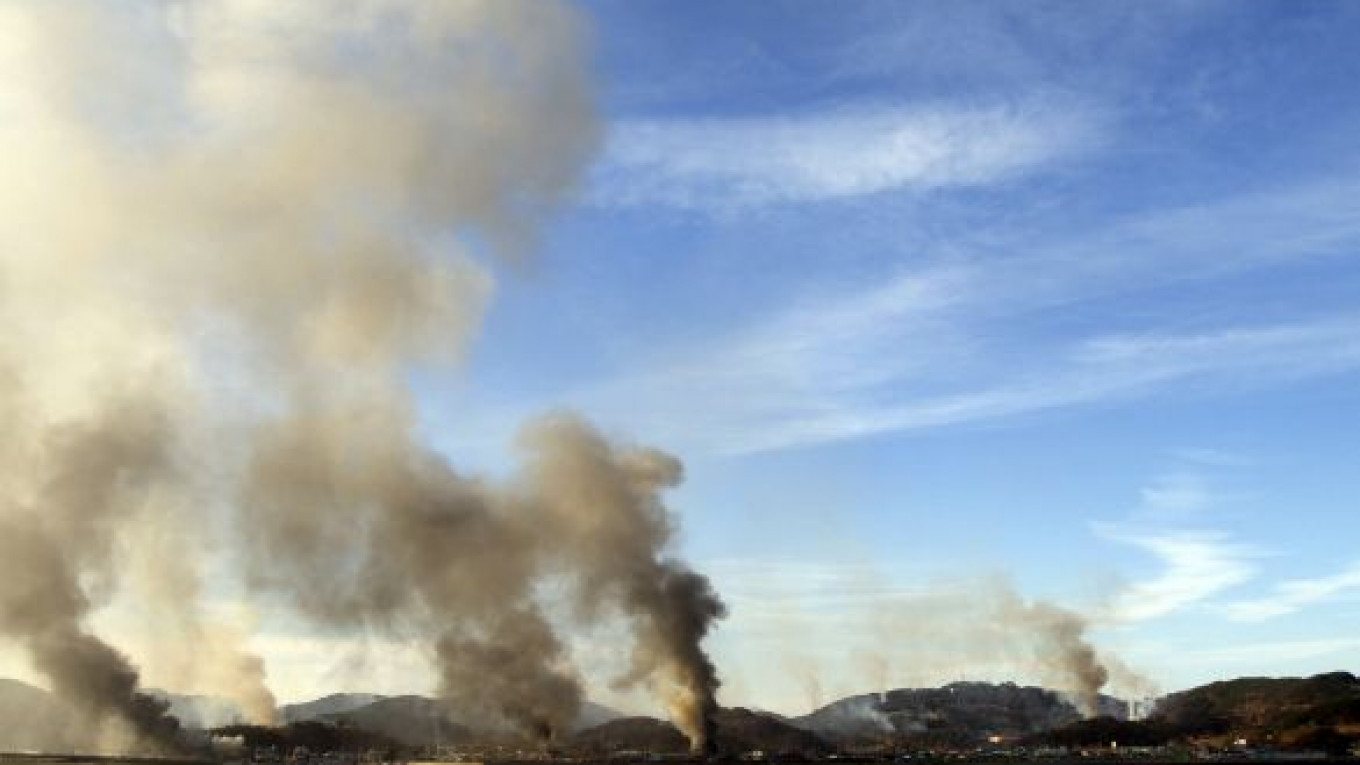Russia sees a "colossal danger" of an escalation in fighting on the Korean peninsula after North Korea's artillery attacked a South Korean island on Tuesday, Foreign Minister Sergei Lavrov said.
"It is necessary to immediately end all strikes. There is a colossal danger that must be avoided. Tensions in the region are growing," Lavrov told reporters during a visit to the Belarussian capital, Minsk.
"Those who started this bear a huge responsibility," Lavrov said. "What is happening requires consultations."
The Foreign Ministry said in a statement that Moscow viewed the events "with deep alarm."
North Korea fired scores of artillery shells at a South Korean island, killing two soldiers, in one of the heaviest attacks on its neighbor since the Korean War ended in 1953.
The South fired back and sent a fighter jet to the area, which is close to a disputed maritime border on the west of the divided peninsula and the scene of deadly clashes in the past. South Korea was conducting military drills in the area at the time but said it had not been firing at the North.
The United States, which has 28,000 troops in South Korea, condemned the attack, but said it was too soon to discuss ways the U.S. military might deter the reclusive communist state from another strike.
The incident followed revelations over the weekend that Pyongyang is fast developing another source of material to make atomic bombs, and analysts said the North may again be pursuing a strategy of calculated provocations to wrest diplomatic and economic concessions from the international community.
It also follows moves by leader Kim Jong-il to make his youngest, but unproven, son his heir apparent, leading some analysts to suggest the bombardment might in part have been an attempt to burnish the ruling family's image with the military.
"Houses and mountains are on fire and people are evacuating. You can't see very well because of plumes of smoke," a witness on the island told YTN Television.
YTN said at least 200 North Korean shells hit Yeonpyeong, which lies off the west coast of the divided peninsula near a disputed maritime border. Most landed on a military base there.
Photographs from the island, 120 kilometers west of Seoul, showed smoke rising from buildings. Two soldiers were killed and 17 wounded. Three civilians were hurt.
News of the attack rattled global markets, already unsettled by Ireland's debt woes and a shift to less risky assets.
Experts say North Korea's Kim has for decades played a carefully calibrated game of provocation to squeeze concessions from the international community and impress his own military. The risk is that the leadership transition has upset this balance and that events spin out of control.
South Korean President Lee Myung-bak, who has pursued a hard line with the North since taking office nearly three years ago, said attacking civilians was unforgivable and any further aggression by Pyongyang would be severely punished.
But he made no suggestion the South would retaliate further, suggesting Seoul was taking a measured response to prevent things from getting out of hand.
A Message from The Moscow Times:
Dear readers,
We are facing unprecedented challenges. Russia's Prosecutor General's Office has designated The Moscow Times as an "undesirable" organization, criminalizing our work and putting our staff at risk of prosecution. This follows our earlier unjust labeling as a "foreign agent."
These actions are direct attempts to silence independent journalism in Russia. The authorities claim our work "discredits the decisions of the Russian leadership." We see things differently: we strive to provide accurate, unbiased reporting on Russia.
We, the journalists of The Moscow Times, refuse to be silenced. But to continue our work, we need your help.
Your support, no matter how small, makes a world of difference. If you can, please support us monthly starting from just $2. It's quick to set up, and every contribution makes a significant impact.
By supporting The Moscow Times, you're defending open, independent journalism in the face of repression. Thank you for standing with us.
Remind me later.






